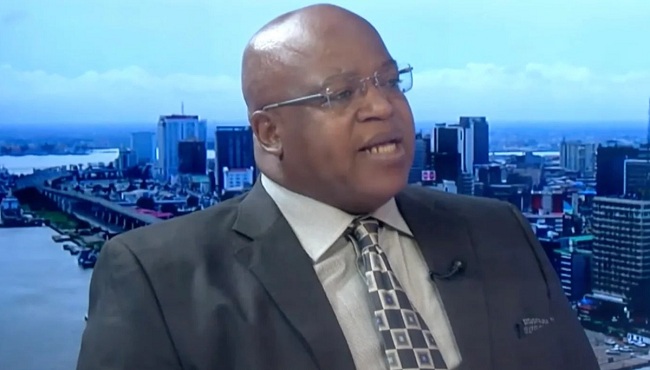Modernisation or Decline: Ex-CEO Calls for Overhaul to Save Nigeria’s Struggling Aviation Sector

Infrastructural deficiency has been identified as one of the major challenges stunting the growth of Nigeria’s aviation industry.
For a change towards the path of Survivability and sustainability, the former Chief Executive Officer of Associated Airlines, Dr. Alex Nwuba highlighted the urgent need for modernisation and expansion of airport facilities in the country with improved air traffic management systems, and better regulatory frameworks to support the sector’s development and ensure safety and efficiency in the airspace.
Dr. Nwuba made these remarks at the 28th Annual Conference of the League of Airport and Aviation Correspondents (LAAC), themed “Aviation Survivability amidst a Challenging Micro-Economic Environment,” held Friday – July 26 – at the Providence Hotel, GRA, Ikeja, Lagos.
During his keynote presentation titled “Infrastructural Impediments to Aviation Industry Growth,” Nwuba underscored the pivotal role of aviation in global connectivity, emphasising that the industry enhances various aspects of human endeavor, from medical and food logistics to family reunifications.
However, he noted that the aviation industry in Nigeria grapples with numerous infrastructural challenges that hinder its growth.
One of the primary challenges of the industry, according to Dr. Nwuba, is Nigeria’s economic environment, where the aviation sector is severely affected by hyperinflation and significant currency devaluation.
He said most operational costs are in dollars, while revenue is predominantly earned in Naira, adding that the sector faces rising costs in aviation fuel, the largest expense for airlines, without the benefit of hedging opportunities available in other markets.
Additionally, proposals such as importing fuel have proven impractical and poorly conceived amidst operational inefficiencies, such as delays and cancellations, overcrowded airspace, pilot shortages, and supply chain disruptions, further impeding the sector’s progress.
Dr. Nwuba highlighted that many of these issues stem from inefficiencies within the industry rather than external factors.
Nwuba said, “The issue of pilot shortage is a future problem, not a current one, but one that is going to become a major problem in the future as we are making limited efforts in developing new pilots, engineers’ dispatchers and air traffic controllers, even though we can see the challenges ahead.
“I will therefore state that the operational impediments in Nigeria are the product of inefficiency and the lack of capacity in man
and material.”
According to him, the early morning wave of flights to destinations like Abuja and Port Harcourt often results in operational bottlenecks. He, however, argued that proposed solutions, such as slot management, fail to address the root causes of these problems.
Dr. Nwuba also noted that regulatory complexities and evolving aviation regulations add to the industry’s burden.
While he commended the Nigerian Civil Aviation Authority (NCAA) for developing alternative certification requirements to ease operational constraints, Nwuba pointed out that the lack of respect for government policies on duties and Aircraft on Ground (AOG) requirements exacerbates the industry’s challenges.
He highlighted security concerns, including terrorism threats and cybersecurity risks posing significant impediments to the sector.
He said increased security measures raise operational costs and inconvenience passengers, while the exclusion of non-traveling passengers from airports reduces commercial revenue.
Dr. Nwuba also identified the “Nigerian factor” as a critical impediment to the sector’s growth.
He explained that this phrase (Nigerian factor) encapsulates issues such as inconsistency in policies, inadequate maintenance and training facilities, and poor corporate governance structures, adding that the absence of a robust economic regulation regime and reliable data further compounds these problems.
“We have not placed the required
maintenance and training facilities to save significant costs, we have wrongly scaled our airports for which everyone will pay for
the inefficiency, we have failed to maintain the training and development of our staff and most of all, we have failed to put in
place the proper corporate governance structures that will bring about cost discipline, appropriate business management, growth and expansion models,” Nwuba noted.
He said there are also external factors, such as geopolitical instability, natural disasters, and potential future pandemics that threaten the aviation industry.
While Nigeria is relatively sheltered from severe natural disasters, the industry must prepare for the next global health crisis that could disrupt travel and reduce demand.
Dr. Nwuba concluded by stressing that the challenges facing Nigeria’s aviation industry are interconnected, each amplifying the effects of others.
“We need a new and sustainable aviation business policy that drives growth and positions Nigeria for the coming common trade area for goods, services and in particular, a single air traffic market.
“Nigeria believes it has a large market, yet we see the same 5% of the population who have bank accounts as the percentage of
air travelers. This is a huge impediment and at the same time an incredible opportunity,” Nwuba said.
He called for comprehensive efforts to address human factors and operational inefficiencies to ensure sustainable growth, urging industry stakeholders to study successful models, like Brazil’s Azul, to drive growth and leverage Nigeria’s market potential.







